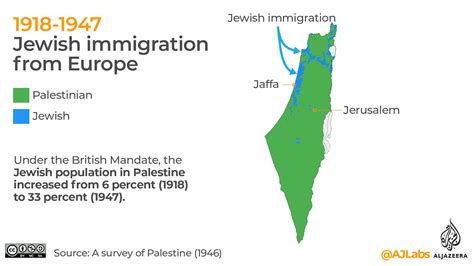The conflict between Israel and Palestine is a complex and multifaceted issue with a long and contentious history. There are many different perspectives on the conflict, and it can be difficult to understand the motivations of the different parties involved. One way to try to understand the conflict is to examine the different historical events that have shaped it.

The Balfour Declaration
One of the key events in the history of the conflict was the Balfour Declaration of 1917. In this declaration, the British government pledged its support for a Jewish homeland in Palestine. This declaration was a major turning point in the conflict, as it gave the Jewish people international recognition for their claim to the land.
The Holocaust
Another major event in the history of the conflict was the Holocaust. During the Holocaust, the Nazis murdered six million Jews. This event had a profound impact on the Jewish people, and it led to a renewed determination to establish a Jewish homeland in Palestine.
The Creation of Israel
In 1948, the State of Israel was created. This event was met with mixed reactions. The Jewish people were overjoyed to finally have a homeland of their own. However, the Arab states were not happy with the creation of Israel, and they launched a war against the new state.
The Six-Day War
In 1967, Israel fought a war against Egypt, Syria, and Jordan. This war was known as the Six-Day War. Israel was victorious in this war, and it captured the Sinai Peninsula, the Gaza Strip, the West Bank, and the Golan Heights.
The Yom Kippur War
In 1973, Egypt and Syria launched a surprise attack on Israel. This war was known as the Yom Kippur War. Initially, Egypt and Syria were successful in their attack, but Israel eventually regained the initiative and won the war.
The Oslo Accords
In 1993, the Israeli government and the Palestine Liberation Organization (PLO) signed the Oslo Accords. These accords were a major step forward in the peace process. However, the accords have not led to a final peace settlement, and the conflict between Israel and Palestine continues to this day.
Here are some of the most common reasons given for why the Jewish people live in Palestine:
- Historical ties: The Jewish people have a long and deep connection to the land of Palestine. The first Jewish settlements in the region date back to the time of Abraham, and the Jews have maintained a continuous presence in the land ever since.
- Religious significance: The land of Palestine is home to the holiest sites in Judaism, including the Temple Mount in Jerusalem. The Jews believe that this land is their God-given inheritance.
- Self-determination: The Jewish people have a right to self-determination, just like any other people. They believe that they have the right to establish their own state in their own homeland.
- Safety and security: The Jewish people have faced persecution and discrimination throughout their history. They believe that they need a safe and secure homeland where they can live without fear.
It is important to note that there are many different perspectives on the conflict between Israel and Palestine. There are many different reasons why the Jewish people live in Palestine, and there are many different opinions on the best way to resolve the conflict. It is important to be respectful of all sides of the conflict and to work towards a peaceful resolution.
Conclusion
The conflict between Israel and Palestine is a complex and multifaceted issue with a long and contentious history. There are many different perspectives on the conflict, and it can be difficult to understand the motivations of the different parties involved. However, by examining the different historical events that have shaped the conflict, we can gain a better understanding of its roots and its current dynamics.
